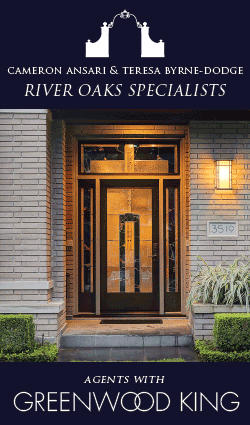If you’ve been to The Pass & Provisions (807 Taft), you’ve probably seen Fred Jones. Or, perhaps not, as he moves through the restaurant like The Flash and is practically a blur. Maybe you’ve just caught that “whoosh” as he goes by, or have had your hair blown back by his wake. The trick to get him to slow down is to be interested in what he’s doing and ask some questions. As beverage director, Jones is in charge of all the drinks, but he is intensely passionate about wine.
His choices for the wine list for Provisions are fascinating, from the best bang-for-the-buck Cava in town (a $7 by-the-glass selection from Penedès) to a funky 2004 Château Musar from Lebanon. His personal background is equally fascinating.
Where were you before you came to Houston? I actually was raised here in Houston. I went to Lamar High School and the University of Texas for theatre. However, before The Pass and Provisions I was in New York doing Shakespeare on the subway with my creative partner Paul Marino. I also worked at Hearth Restaurant & Terroir Wine Bar (the East Village location) for two-and-a-half years. I was a server, then became a bartender, then was promoted to service director. [Editor’s note: Check out this Wall Street Journal interview and video of Fred and Paul during those subway performance days.]
How did you get to know Seth Siegel-Gardner and Terrence Gallivan, the chefs/co-owners of The Pass & Provisions? I worked with Terrence at August in the West Village when I first moved to New York, and Seth is a family friend. His wife and my sister are best friends. I’d just come back to New York, from a nine-week tour performing Shakespeare in London, Berlin and Amsterdam. I got a phone call and they asked “Are you ready?” I said, “Already?!” The answer was “Yes.” “When?” “August.”
Are you going to do anything with your drama background here in Houston? If it comes to it, but at this point in time The Pass and Provisions is the stage. Every night is “go time.” Every night the lights are bright and there is someone to entertain and hopefully turn on to a wine that is not from California. The restaurant industry and the theatre industry are always one. People in the theatre industry work in restaurants. Restaurants and theatres are both forums for open discussion. Both have scripts; both have improv. There is the monologue of service and the dialogue of hospitality.
Why do you think most somms are well-spoken? First off, I am not a sommelier. I have had no formal training. I’m a wino with a wine list. Everything I have learned about wine is from working on restaurant floors, burying my nose in books and putting everything through my palate and my liver. But I think it is because wine is exciting and passionate. It is about man versus nature. It has more texture and depth than just about anything in the world because it’s been around for hundreds and hundreds of years. It’s a live performance in every single bottle. You want to give it a voice, because the only other voice it has is on the palate.
If you can’t get excited about wine, there’s no reason to drink it, because wine is the ultimate gamble. If you want to make life difficult for yourself, go open a vineyard somewhere and see how long that lasts. You cannot predict what Nature is going to do.
So, you have no formal training, but you’ve taught yourself quite well. How did you do that? If you look at my maps (see them online within the wine list at The Pass & Provisions), they are the most important tool in understanding the world of wine. Let’s look at Savoie [a French wine region]. It’s on the border of Switzerland next to a huge mountain range. That means that it’s going to be very warm during the day and cold at night, which means the grapes are going to be able to ripen and also maintain their acidity. There’s erosion, marble and gravel, which means minerals. Just knowing where the wine comes from is half the battle.
It also helps to understand what kind of food is eaten in that region. In Burgundy, they eat a lot of game, cheese, that sort of thing, so the wines are going to be made to go with that. There are hundreds of books about wine pairings, but if you just think about where the food you are eating is coming from, you’ll know what wine goes with it.









Follow Us